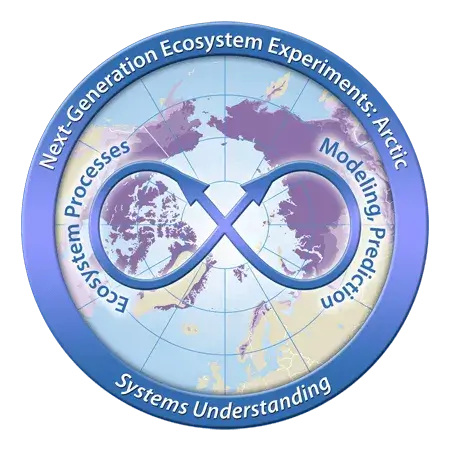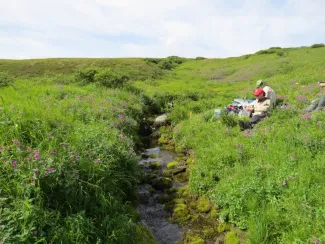The UAF Northwest Campus (http://www.nwc.uaf.edu/) regularly hosts ‘Strait Science Series’ lectures to promote understanding between Nome citizens and researchers who frequent the Seward Peninsula. LANL Postdoc, Carli Arendt, led one of these lectures in mid-September where she presented research goals and preliminary findings pertaining to NGEE’s Science Question-5: ‘Where, when and why will the Arctic get wetter or drier?” Carli explained the relationship between permafrost and hydrological pathways to a wide cross-section of the community ranging from middle school students to interested stakeholders. She explained how climate change may impact hydrology as the Seward Peninsula experiences longer warming periods. Carli’s presentation addressed not only an important science question, but it also went into detail on the techniques used to collect water samples from different environments (e.g., peat, mineral soils, saturated zones, seepages, and springs) and soil depths. Carli explained that the NGEE Arctic hydrogeochemistry team collects samples over varying timescales to identify long and short term processes and trends using both in situ and laboratory chemical analyses. Carli explained how hydrologic pathway information from surface and subsurface water chemistry can be used to inform us regarding the state of permafrost (e.g., continuous versus discontinuous). Overall, the future of the Arctic, and specifically the Seward Peninsula is much more complicated than ‘wetter’ or ‘drier’ but Carli explained that knowledge gained from field and laboratory studies can provide us valuable insight on the redistribution of water in the Arctic as permafrost thawing occurs and hydrologic pathways change.
For more information, please contact:
Carli Arendt
carendt@ncsu.edu

